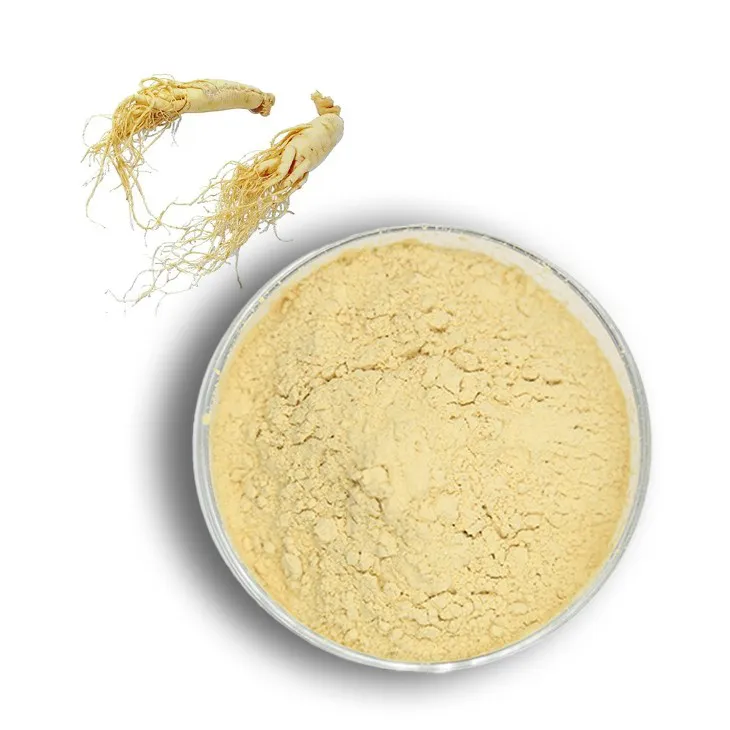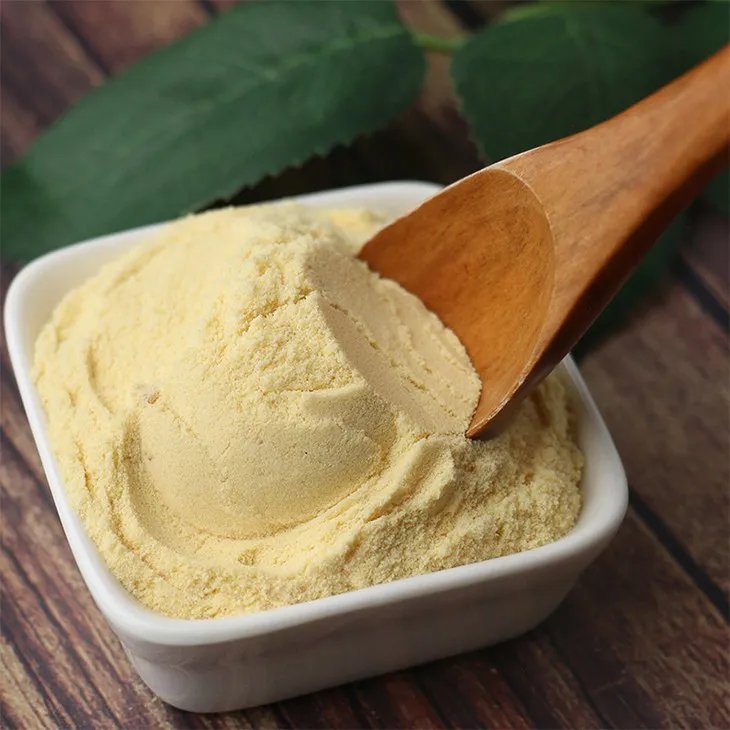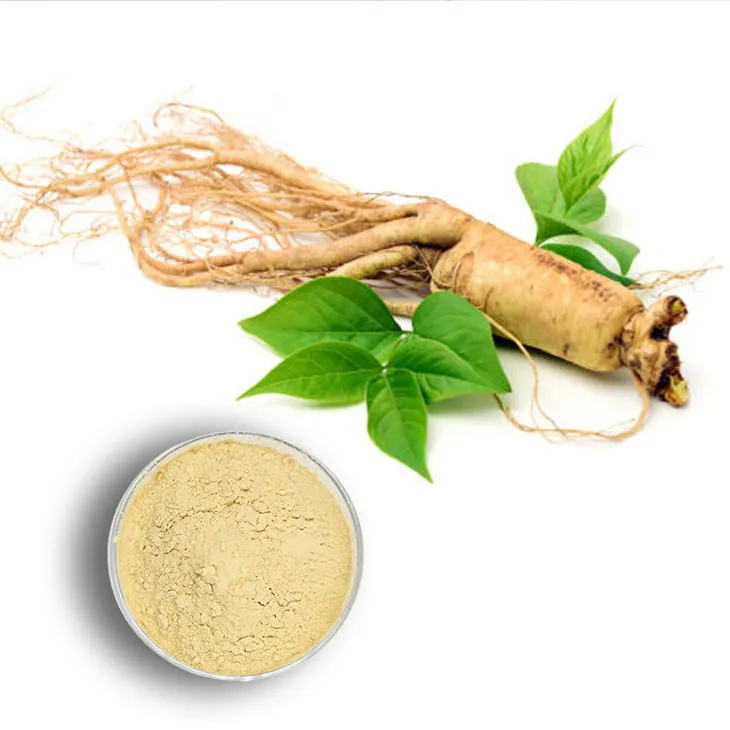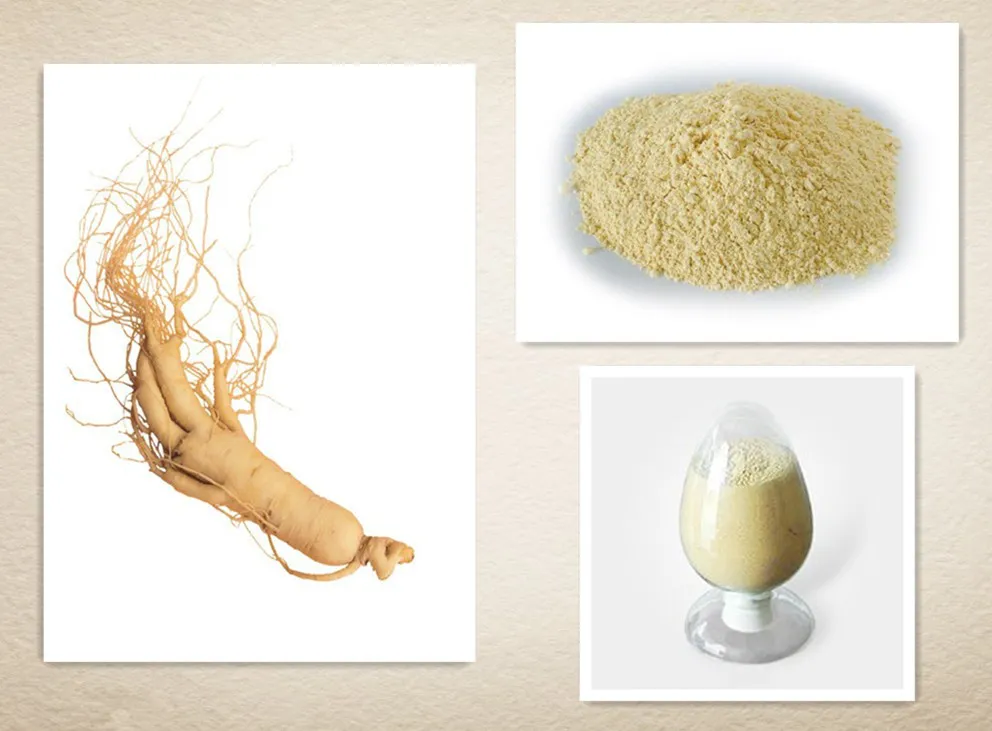- 0086-571-85302990
- sales@greenskybio.com
Two Bases for the Quality of Ginseng Root Extract: Potency and Purity.
2024-12-15

1. Introduction
Ginseng, a well - known herbal plant, has been used in traditional medicine for centuries. Ginseng Root Extract is highly valued for its potential health benefits. The quality of Ginseng Root Extract is of utmost importance, and two key factors that determine this quality are potency and purity.

2. Chemical Composition of Ginseng Root
Ginseng root contains a complex mixture of chemical compounds. These include:
- Ginsenosides: These are the primary active components in ginseng. There are multiple types of ginsenosides, such as Rg1, Re, and Rb1. Each ginsenoside may have different physiological effects. For example, Rg1 is often associated with enhancing cognitive function, while Rb1 may have a role in reducing stress and improving the immune system.
- Polysaccharides: These compounds are also important in ginseng. They contribute to the overall health - promoting properties of Ginseng Root Extract, such as its immunomodulatory effects.
- Flavonoids: Flavonoids in ginseng root play a role in antioxidant activities. They help to protect the body's cells from oxidative damage.

3. Potency of Ginseng Root Extract
3.1 Definition and Measurement
Potency refers to the strength or effectiveness of the ginseng root extract. It is often measured in terms of the concentration of active compounds, especially ginsenosides. High - potency ginseng root extract contains a relatively high amount of ginsenosides per unit volume or weight. Analytical methods such as high - performance liquid chromatography (HPLC) are commonly used to determine the potency of ginseng root extract. HPLC can accurately quantify the levels of different ginsenosides present in the extract.
3.2 Factors Affecting Potency
Several factors can influence the potency of ginseng root extract:
- Genetic Varieties: Different ginseng species and cultivars can have varying levels of ginsenosides. For example, Panax ginseng and Panax quinquefolius may have different potency profiles due to their genetic differences.
- Growth Conditions: The environment in which ginseng is grown affects its potency. Factors such as soil quality, sunlight exposure, and temperature play a role. Ginseng grown in nutrient - rich soil and under optimal climatic conditions is likely to have higher potency.
- Harvesting and Processing: The time of harvesting and the methods of processing can impact potency. Harvesting ginseng at the right maturity stage ensures a higher concentration of active compounds. Additionally, proper drying, extraction, and purification processes during processing are crucial for maintaining potency.

4. Purity of Ginseng Root Extract
4.1 Definition and Significance
Purity refers to the absence of contaminants and impurities in the ginseng root extract. Pure ginseng root extract should contain only the desired components from the ginseng root and minimal or no foreign substances. Purity is important because contaminants can reduce the efficacy of the extract and may also pose potential health risks. For example, if the extract is contaminated with pesticides or heavy metals, it can have adverse effects on the user.
4.2 Sources of Impurities
There are several sources of impurities in ginseng root extract:
- Soil Contaminants: Ginseng absorbs substances from the soil it grows in. If the soil is contaminated with heavy metals like lead, cadmium, or mercury, these can end up in the ginseng root and subsequently in the extract.
- Pesticide Residues: During cultivation, pesticides may be used to protect ginseng from pests and diseases. If not properly regulated, pesticide residues can remain in the ginseng root and be present in the extract.
- Processing - Related Impurities: During the extraction and processing of ginseng root, impurities can be introduced. For example, improper extraction solvents or equipment can leave behind residues that contaminate the extract.
4.3 Ensuring Purity
To ensure the purity of ginseng root extract, several measures can be taken:
- Good Agricultural Practice (GAP): Implementing GAP during cultivation helps to minimize soil contamination and control pesticide use. This includes proper soil management, irrigation, and pest control strategies.
- Quality Control in Processing: Stringent quality control during extraction and processing is essential. This involves using high - quality extraction solvents, clean and well - maintained equipment, and proper purification procedures such as filtration and chromatography.
- Testing and Certification: Regular testing for contaminants such as heavy metals and pesticide residues is necessary. Ginseng root extract products can obtain certifications from recognized authorities to demonstrate their purity.

5. The Importance of Potency and Purity in Determining Value and Efficacy
The potency and purity of ginseng root extract are crucial in determining its value and efficacy in various applications:
5.1 Nutritional Supplements
In the field of nutritional supplements, consumers expect products that are both effective and safe. High - potency ginseng root extract ensures that the desired health benefits, such as improved energy levels, enhanced mental focus, and strengthened immune system, are more likely to be achieved. At the same time, pure extract without contaminants provides assurance of safety. For example, a supplement with a potent and pure ginseng root extract can be a valuable addition to a daily health regimen for individuals looking to boost their overall well - being.
5.2 Pharmaceutical Applications
In pharmaceutical research and development, the potency and purity of ginseng root extract are of great significance. Potency is crucial for determining the appropriate dosage of ginseng - based drugs. A precisely measured and potent extract can be used to develop medications for treating specific diseases, such as neurodegenerative disorders or cardiovascular diseases. Purity is essential to ensure that the drug is free from harmful substances that could cause adverse reactions in patients. Pharmaceutical - grade ginseng root extract must meet strict purity standards to be used in drug formulation.
5.3 Cosmetic Applications
Ginseng root extract is also used in the cosmetic industry. In skin - care products, for instance, its antioxidant and anti - aging properties are highly desirable. Potent ginseng root extract can effectively protect the skin from free - radical damage and promote skin rejuvenation. Purity is important in cosmetics as well, as any contaminants in the extract could potentially cause skin irritation or allergic reactions. Cosmetic products containing pure and potent ginseng root extract can offer consumers high - quality skincare solutions.

6. Conclusion
In conclusion, the potency and purity of ginseng root extract are two fundamental aspects that determine its quality. Understanding the chemical composition of ginseng root and the factors that affect potency and purity is essential for ensuring the production of high - quality ginseng root extract. Whether it is for use in nutritional supplements, pharmaceuticals, or cosmetics, maintaining high levels of potency and purity is crucial for realizing the full potential of ginseng root extract in terms of its value and efficacy. As the demand for ginseng root extract continues to grow in various industries, strict quality control measures should be implemented to safeguard the integrity of this valuable herbal extract.
FAQ:
Question 1: What is the significance of potency in ginseng root extract?
Potency in ginseng root extract is of great significance. It is related to the concentration of active compounds such as ginsenosides. Higher potency means a greater amount of these beneficial substances. This can lead to more pronounced physiological effects, for example, in enhancing energy levels, improving cognitive function, and strengthening the immune system. The potency determines how effective the extract will be in various applications, whether it is in dietary supplements or traditional medicine.
Question 2: How is the purity of ginseng root extract measured?
The purity of ginseng root extract can be measured through several methods. One common approach is chromatographic techniques, such as high - performance liquid chromatography (HPLC). This can separate and quantify the different components in the extract, allowing for the determination of the proportion of ginseng - specific compounds relative to other substances. Spectroscopic methods can also be used to analyze the purity. Additionally, strict quality control standards in the manufacturing process ensure that the extract is free from contaminants like heavy metals, pesticides, and other impurities.
Question 3: Why are both potency and purity important for the applications of ginseng root extract?
Both potency and purity are crucial for the applications of ginseng root extract. In terms of applications, if the extract has high potency but low purity, the presence of contaminants may cause adverse effects or reduce the overall effectiveness. On the other hand, if it has high purity but low potency, it may not produce the desired physiological effects. For example, in the pharmaceutical industry, a pure but not potent enough extract may not be effective in treating certain diseases. In the dietary supplement market, consumers expect products with both high - quality active ingredients (potency) and free from harmful substances (purity).
Question 4: How does the chemical composition of ginseng root extract relate to its potency and purity?
The chemical composition of ginseng root extract is directly related to its potency and purity. The main active components in ginseng, such as ginsenosides, are key factors in determining potency. A higher content of these active ginsenosides means higher potency. Regarding purity, the chemical composition should consist mainly of these beneficial ginseng - related compounds. If there are excessive amounts of other non - ginseng substances or contaminants, the purity will be compromised. Thus, understanding the chemical composition helps in evaluating and controlling both the potency and purity of the extract.
Question 5: Can the potency and purity of ginseng root extract be improved?
Yes, the potency and purity of ginseng root extract can be improved. To enhance potency, advanced extraction techniques can be used to increase the yield of active compounds like ginsenosides. Optimization of the cultivation conditions of ginseng, such as soil quality, sunlight exposure, and harvesting time, can also contribute to higher potency. For purity, strict quality control during the extraction, purification, and manufacturing processes is essential. This includes using high - quality raw materials, proper filtration methods to remove impurities, and compliance with strict regulatory standards to ensure a pure and high - quality ginseng root extract.
Related literature
- Analysis of Ginsenosides in Ginseng Root Extract: A Comprehensive Review"
- "Purity and Potency: Quality Assessment of Ginseng - Based Dietary Supplements"
- "The Chemical Composition and Bioactivity of Ginseng Root Extract: Implications for Potency and Purity"
- ▶ Hesperidin
- ▶ citrus bioflavonoids
- ▶ plant extract
- ▶ lycopene
- ▶ Diosmin
- ▶ Grape seed extract
- ▶ Sea buckthorn Juice Powder
- ▶ Beetroot powder
- ▶ Hops Extract
- ▶ Artichoke Extract
- ▶ Reishi mushroom extract
- ▶ Astaxanthin
- ▶ Green Tea Extract
- ▶ Curcumin Extract
- ▶ Horse Chestnut Extract
- ▶ Other Problems
- ▶ Boswellia Serrata Extract
- ▶ Resveratrol Extract
- ▶ Marigold Extract
- ▶ Grape Leaf Extract
- ▶ blog3
- ▶ blog4
- ▶ blog5
-
Pure 85% Tomentil Extract.
2024-12-15
-
Citrus Aurantii Extract
2024-12-15
-
Elderberry Extract
2024-12-15
-
Bayberry Extract
2024-12-15
-
Ivy Extract
2024-12-15
-
Dandelion Root Extract
2024-12-15
-
Saffron Extract Powder
2024-12-15
-
Baicalin
2024-12-15
-
Fenugreek Extract Powder
2024-12-15
-
Lemon Extract
2024-12-15
-
Uridine-5'-monophosphate Disodium salt
2024-12-15





















